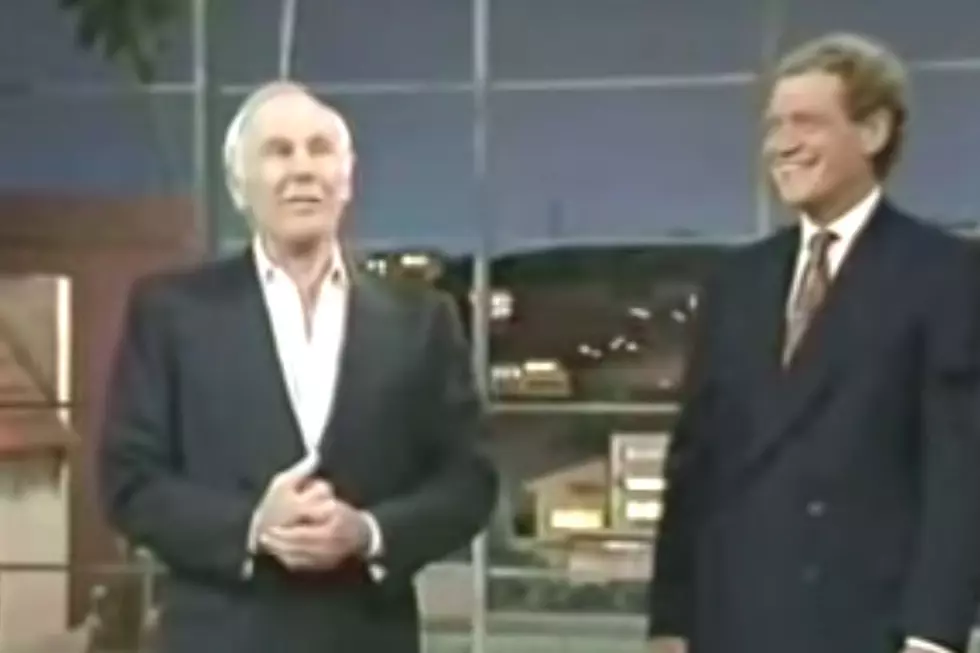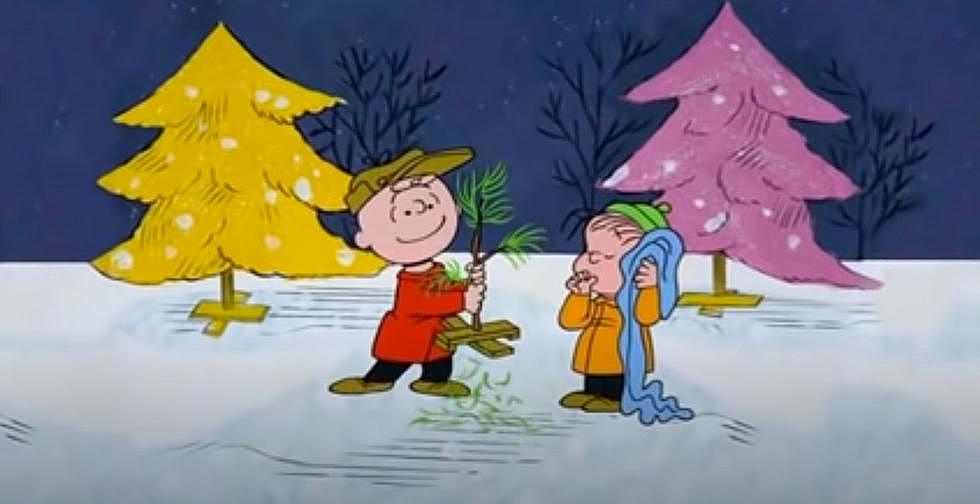
25 Years Ago: Johnny Carson Makes His Final TV Appearance
UCR: Movies and Culture
Johnny Carson retreated from public life after he ended his run as host of NBC's The Tonight Show in 1992. But on May 13, 1994, nearly two years to the day after his farewell, he made a surprise cameo on the Late Show With David Letterman, which turned out to be his last-ever TV appearance before his death in January 2005.
Letterman had moved his show to CBS a year earlier, following a high-profile battle with Jay Leno for Carson's 11:30PM slot. Carson and Letterman were old friends, and Letterman had often said he wanted the job whenever Carson was ready to stand down. But Leno had been the "permanent guest host" of The Tonight Show since 1987. The network eventually went with Leno.
Carson wasn't consulted by NBC on the decision. As The New York Times reported in 1994, he was brought in only after the network feared it was going to lose Letterman. "I'd probably walk," Carson told his friend. "I'm not telling you to do that, David. But if you're asking me what I'd do, if I had been treated like that, I would probably walk."
In November 1993, 11 weeks into Letterman's CBS run, Carson called into The Late Show when Letterman rang him to see if he could use Carson's "Stump the Band" segment on his new show. Even though Carson never made any public statements about NBC"s decision, calling into Letterman's show -- which was on a different network than the one where he ruled late-night airwaves for 30 years -- spoke volumes about his thoughts on the matter.
Six months later, he took it one step further.
Letterman, who was closing out a week of shows from Los Angeles, announced that Carson would bring out that night's Top 10 list. But as Paul Shaffer and the CBS Orchestra launched into Carson's iconic theme song, Calvert DeForest, who played Larry "Bud" Melman on the show, walked out instead and handed Letterman the card. DeForest called Letterman a "pinhead," and said, "Goodnight, suckers" before walking offstage. Letterman then sat down, realized he has the wrong card and asked for the right one. Then the real Carson came onstage.
The two men exchanged some laughs that are inaudible over the music and applause. Letterman then offered Carson the seat behind his desk. More than a minute into the ovation, Carson faked out everybody -- including Letterman -- by getting up, shaking Letterman's hand and wishing him luck as he went backstage.
"What's the point," Letterman asked sidekick Paul Shaffer. "Like I'm going to continue after that."
You can watch the moment below.
"I think I left at the right time," Carson said in a rare interview with Esquire in 2002. "You've got to know when to get the hell off the stage, and the timing was right for me. The reason I really don't go back or do interviews is because I just let the work speak for itself."
Carson preserved his legacy by personally overseeing a series of DVDs featuring highlights from his years on The Tonight Show. (He owned the rights to the tapes since 1980 as part of a deal to keep him at NBC.) Even though his face wasn't seen on television after those 90 seconds on the Late Show, his comedy was still heard, even though only a few people knew it.
A few days before Carson's death, CBS executive Peter Lassally, who had produced both Letterman and Carson during his long career, revealed that Carson would occasionally send jokes directly to Letterman.
“I think the thing he misses the most is the monologue,” Lassally said. “He reads the newspaper every day and might think up five good jokes that he wishes he had an outlet for. Once in a while he sends jokes to Letterman, and Letterman will use his jokes in the monologue and he gets a big kick out of that.”




